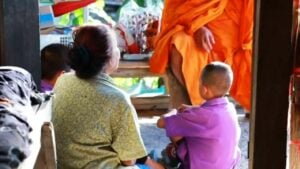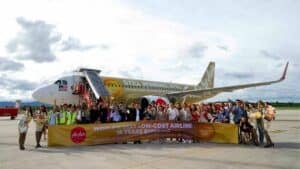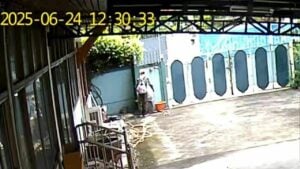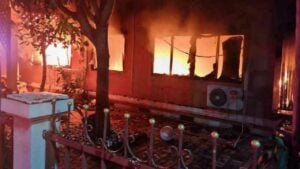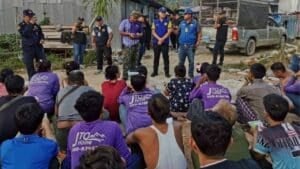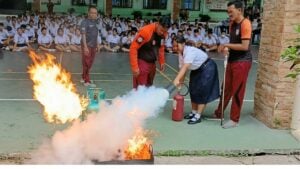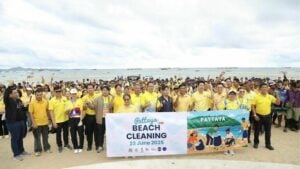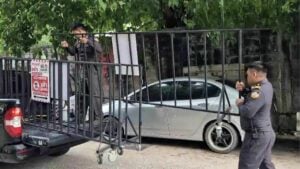Covid-19 hotline for forgotten migrant workers
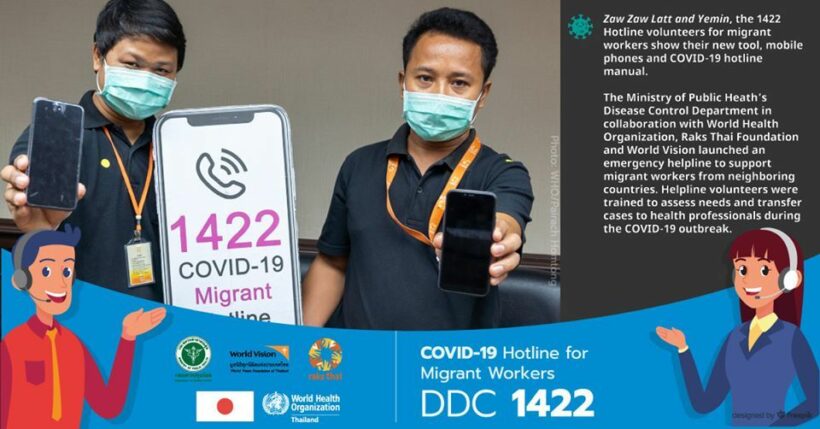
45 year old Maw la Myine is from Myanmar and works for NGO Thai Raks, educating his community about public health issues such as HIV and TB. And now, Covid-19. Maw has a gift for languages, having been a volunteer Mon language teacher to children at home. His ability to speak Thai led to him becoming a translator, liaising between the factory bosses and the workers.
He now provides a hotline service for Burmese, Cambodian and Lao migrant workers, in their native languages, who have fallen between the cracks of any support from the Thai government. Maw’s been a vital link to help prevent the spread of misinformation and myths about how the virus is spread.
“The reason I went to law school was to assist my people and even if I am not a lawyer, I can say that I am achieving that goal now.”
Last week saw the launch of a migrant hotline (1422) for Covid-19. He acts as one of the hotline’s responders.
This means migrants can get culturally and linguistically appropriate information not just on how to protect themselves, but information about testing and treatment as well.
Migrants often live in overcrowded conditions without adequate sanitation for handwashing, and where it is almost impossible to practice physical distancing.
The situation for the region’s migrant workers came into stark focus two weeks ago when Singapore’s efforts at containing the coronavirus, an early role model for the region, suddenly spiked as cases spiked among its migrant worker population. From exactly 1,000 cases at the start of April to over 20,000 today (Thursday).
Maw says that many migrants may struggle to access health-care services and public health information.
“Language challenges and a fear of engagement with officials may increase the barriers.”
The majority of Thailand’s migrant workforce have lost all form of income since the Covid-19 crisis began, and are unable to meet their own needs for basics such as food. Even the basic precautions like wearing face masks and using hand sanitiser are a huge challenge when soap and water is not available.
“Someone who shares one room with eight people cannot practise physical distancing. So we emphasise other measures such as leaving the room if you need to sneeze and then washing your hands so you don’t spread germs.”
This pragmatic approach is echoed by the IOM chief of Mission to Thailand, Dana Graber-Ladek. The IOM recently conducted a rapid assessment that looked into the mass of misinformation to which migrants with lower literacy levels are susceptible.
“This hotline is crucial to ensure that migrants can get the facts they need, and use that information to protect themselves,” she said.
“There is an undeserved stigma about migrants and the virus. Their physical environment, such as overcrowded company housing or cramped factory production floors, is beyond their control. They are working in Thailand to send remittances home and take care of their families.”
SOURCE: World Health Organisation Thailand
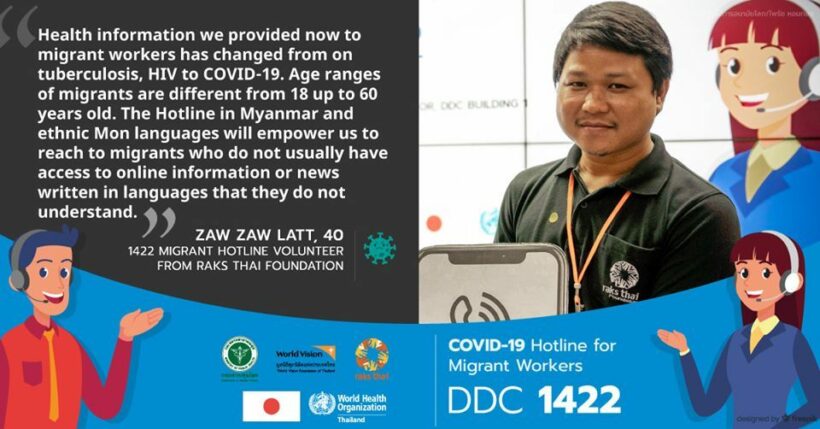
Latest Thailand News
Follow The Thaiger on Google News:


